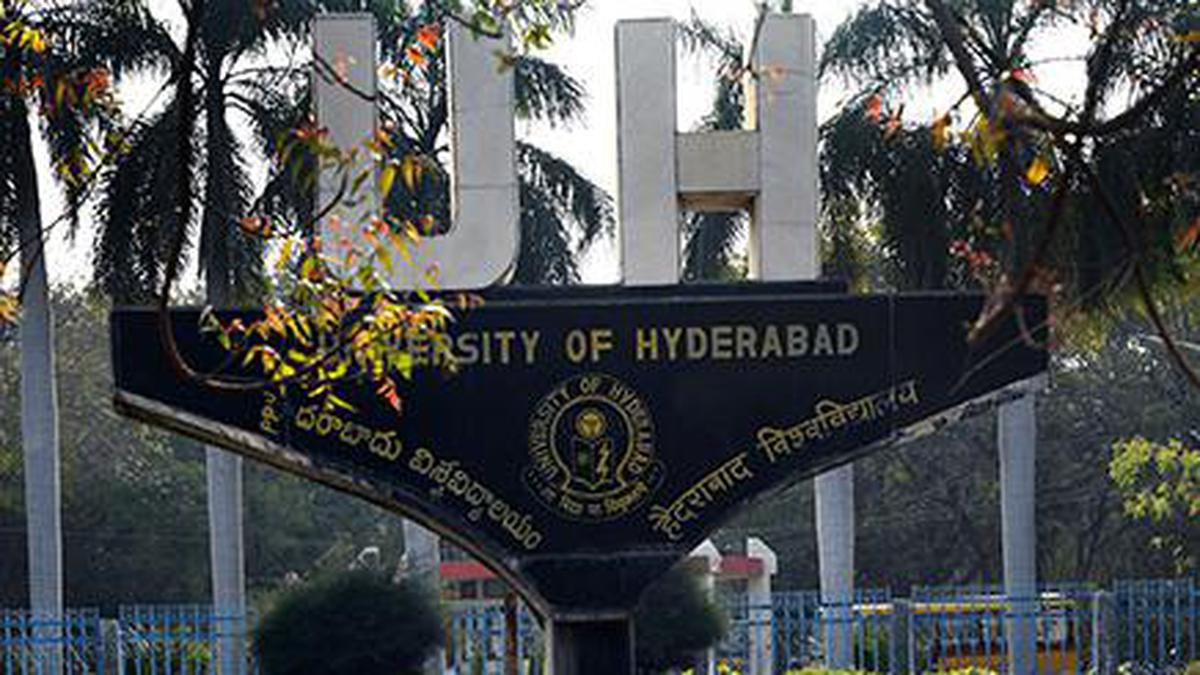
Supreme Court says discrimination in educational institutions a “very serious issue”, asks University Grants Commission to specify steps taken to curb it
The Hindu
The Supreme Court on July 6 asked the University Grants Commission (UGC) to specify steps it has taken and proposed to take, to provide non-discriminatory, enabling environment for the students belonging to Scheduled Castes and Schedule Tribes in institutions of higher learning, terming it a “very serious issue”
The Supreme Court on July 6 asked the University Grants Commission (UGC) to specify the steps it had taken and proposed to take, to provide a non-discriminatory and enabling environment for students belonging to Scheduled Castes and Schedule Tribes in institutions of higher learning, terming it a “very serious issue”.
A Bench of Justices A.S. Bopanna and M.M. Sundresh asked the UGC to furnish the details on a plea by the mothers of Rohith Vemula and Payal Tadvi, who had allegedly died by suicide following alleged caste-based discrimination in their educational institutions.
While Vemula, a dalit Ph.D scholar at Hyderabad Central University, had ended his life on January 17, 2016, Tadvi, a student at TN Topiwala National Medical College, Mumbai, and belonging to the Adivasi Tadvi Bhil community, took the extreme step on May 22, 2019, due to alleged caste-based discrimination by three doctors of her institution.
“This is a very serious issue. Whatever concerns are raised... how do you propose to deal with it and what steps have you taken to address these grievances? This issue is non-adversarial and the UGC needs to take some concrete action. It is for the benefit of students and their parents. Steps taken would ensure that these types of incidents don't happen in future,” the Bench told the counsel appearing for the UGC. Senior advocate Indira Jaising, appearing for the mothers of Vemula and Tadvi, said they had lost their son and daughter respectively, and in the past year three more students, studying at a National Law School, a medical college, and the Indian Institute of Technology — Bombay, had taken their lives.
“Therefore, there is a sense of urgency about this petition. It would be appropriate that UGC formulates binding guidelines which can be followed by institutes of higher learning.
“It is unfortunate that the existing guidelines do not have a binding effect as they do not have any sanction for violation of the norms. There should be some regulations like Prevention of Sexual Harassment [PoSH] at Workplace Act and the anti-ragging law, which provides for punitive action in case of violation,” Ms. Jaising said.
She said equity regulations framed by the UGC in 2012 to address the complaints of caste discrimination on campuses were proving to be inadequate.

“Writing, in general, is a very solitary process,” says Yauvanika Chopra, Associate Director at The New India Foundation (NIF), which, earlier this year, announced the 12th edition of its NIF Book Fellowships for research and scholarship about Indian history after Independence. While authors, in general, are built for it, it can still get very lonely, says Chopra, pointing out that the fellowship’s community support is as valuable as the monetary benefits it offers. “There is a solid community of NIF fellows, trustees, language experts, jury members, all of whom are incredibly competent,” she says. “They really help make authors feel supported from manuscript to publication, so you never feel like you’re struggling through isolation.”

Several principals of government and private schools in Delhi on Tuesday said the Directorate of Education (DoE) circular from a day earlier, directing schools to conduct classes in ‘hybrid’ mode, had caused confusion regarding day-to-day operations as they did not know how many students would return to school from Wednesday and how would teachers instruct in two modes — online and in person — at once. The DoE circular on Monday had also stated that the option to “exercise online mode of education, wherever available, shall vest with the students and their guardians”. Several schoolteachers also expressed confusion regarding the DoE order. A government schoolteacher said he was unsure of how to cope with the resumption of physical classes, given that the order directing government offices to ensure that 50% of the employees work from home is still in place. On Monday, the Commission for Air Quality Management in the National Capital Region and Adjoining Areas (CAQM) had, on the orders of the Supreme Court, directed schools in Delhi-NCR to shift classes to the hybrid mode, following which the DoE had issued the circular. The court had urged the Centre’s pollution watchdog to consider restarting physical classes due to many students missing out on the mid-day meals and lacking the necessary means to attend classes online. The CAQM had, on November 20, asked schools in Delhi-NCR to shift to the online mode of teaching.









